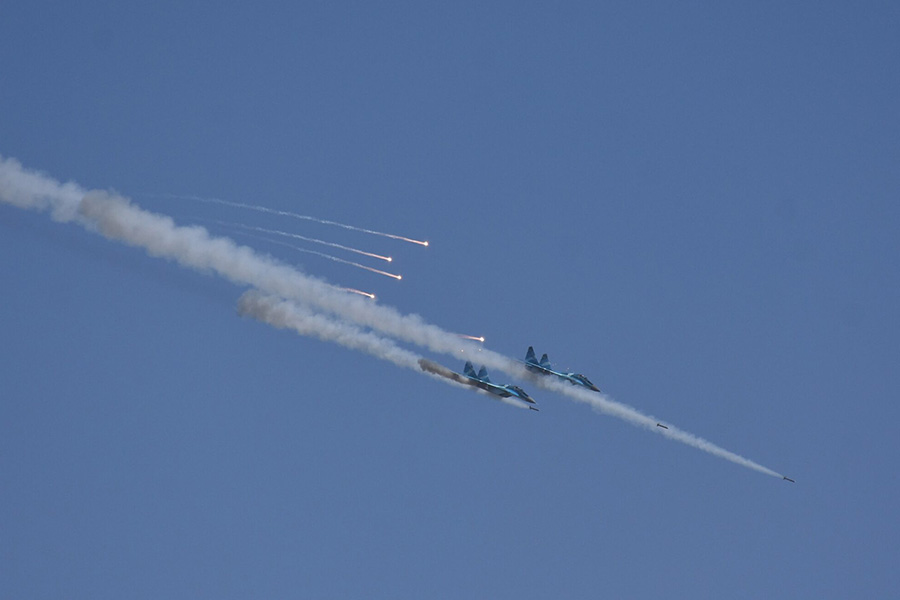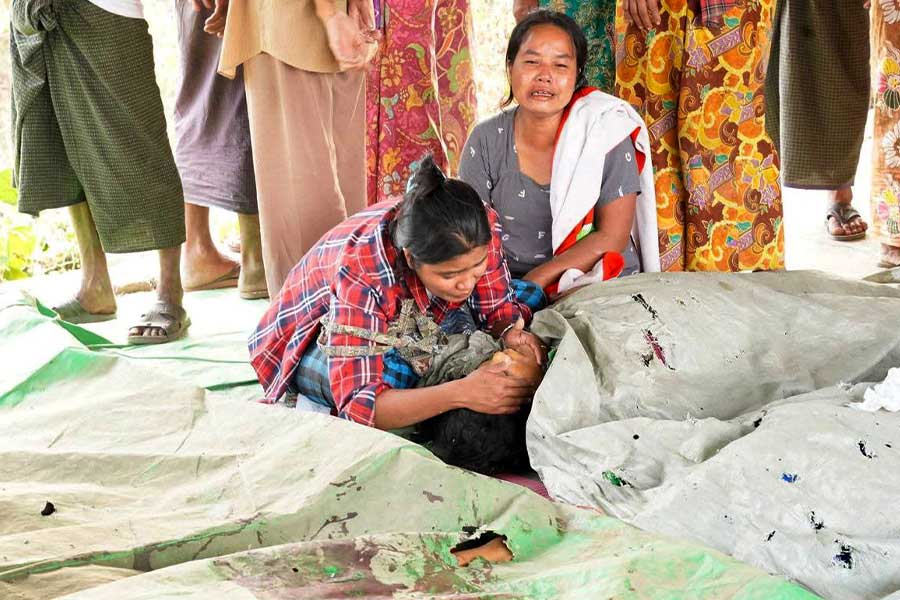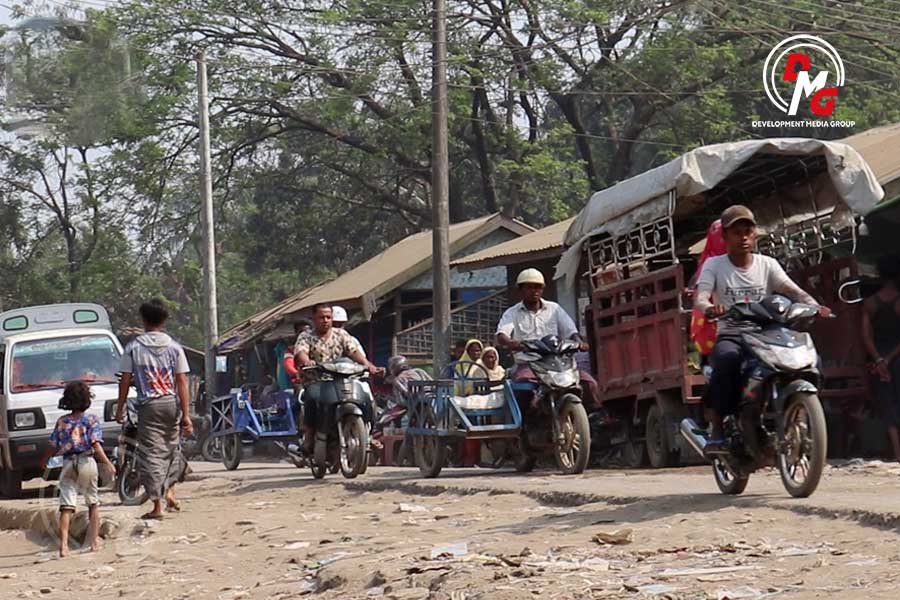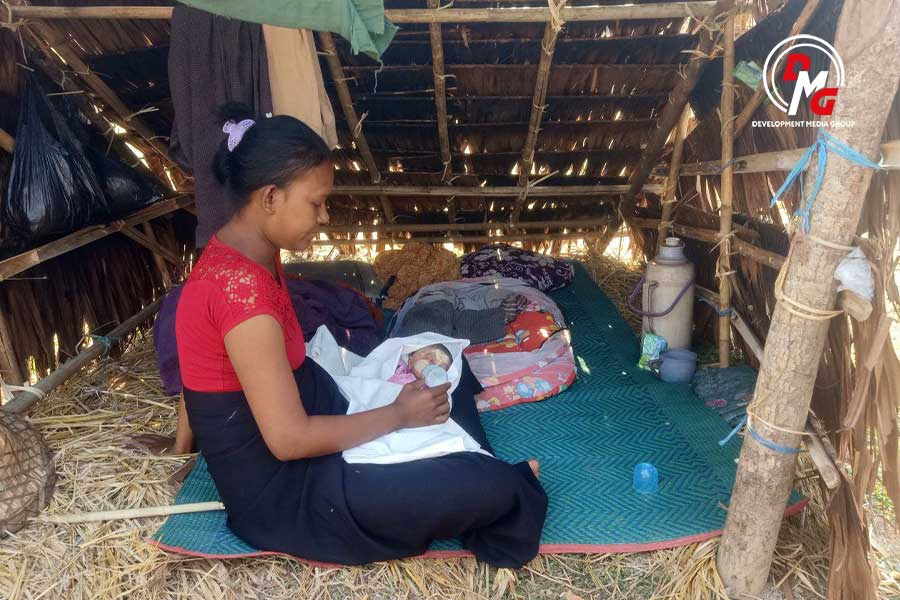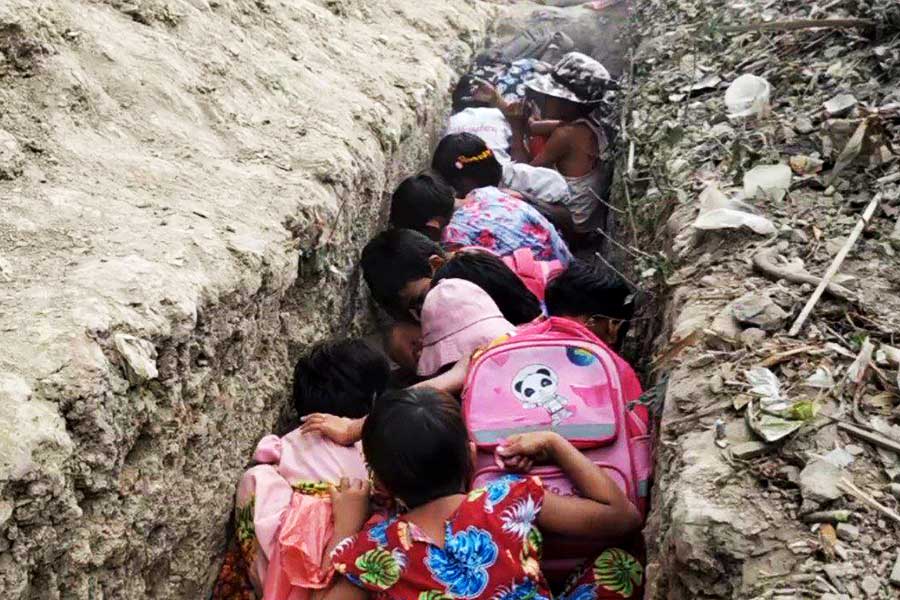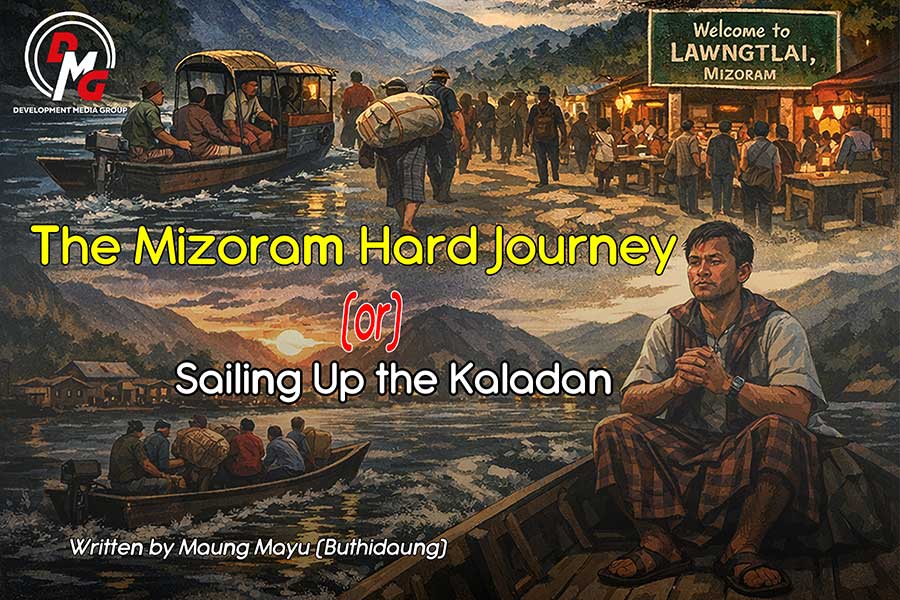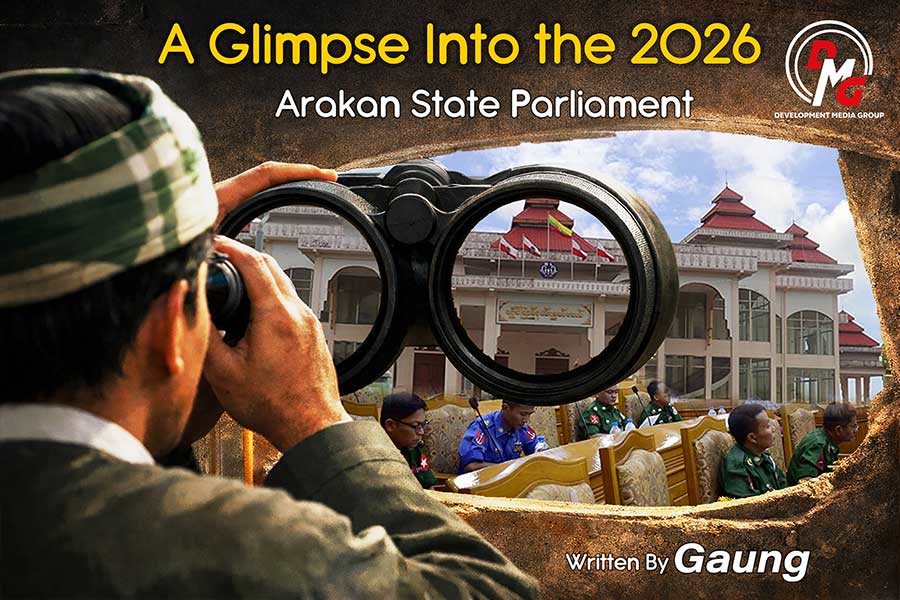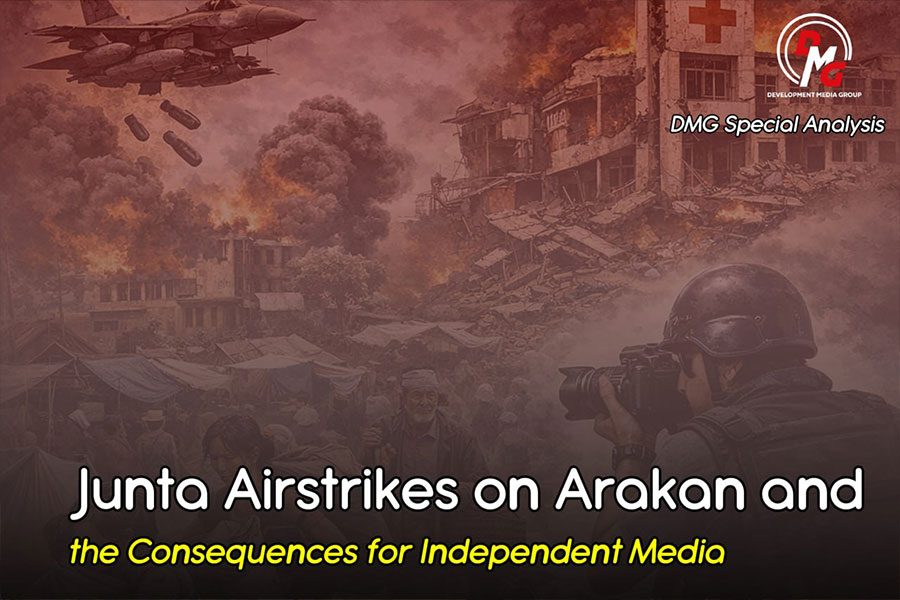- Arakan residents call for air raid warning systems amid surge in junta airstrikes
- Arakan’s Breathing Space (or) Mizoram–Arakan Trade and Business
- Death toll rises to 18 after junta airstrike on Ponnagyun village market
- Regime arrests dozens of Muslims in Sittwe over alleged Arakan Army links
- Over 200 IDPs in Ponnagyun struggle without shelter, food aid
Cash Crisis Wreaks Havoc on War-Torn Arakan State
The cash crisis has become a problem on top of other problems for locals who were already facing shortages of food, consumer goods and medicines, seriously impacting various aspects of everyday life for the people of Arakan State.
05 Sep 2024
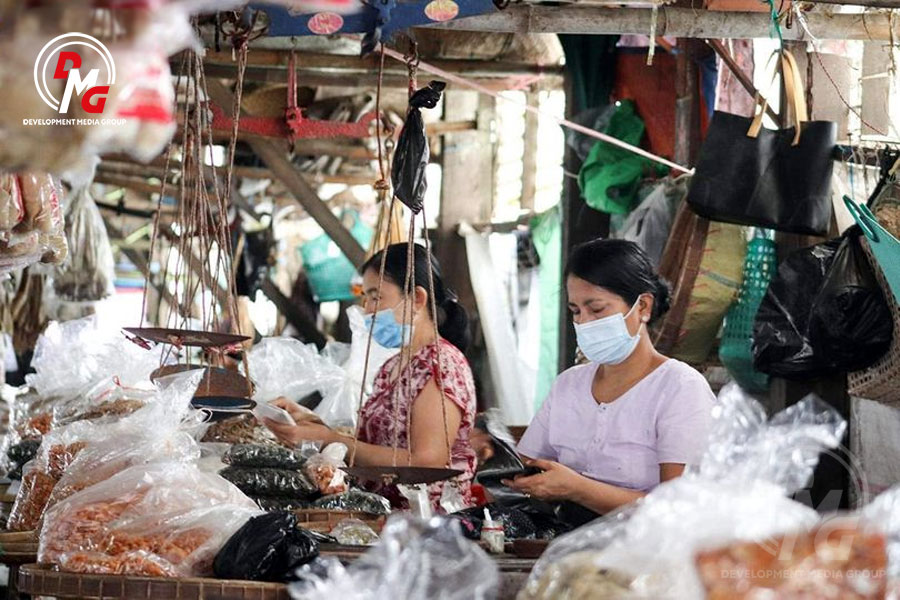
Written by Myo Thiri Kyaw
Cash shortages have become commonplace in Arakan State after the renewed hostilities that erupted in November of last year severely disrupted the banking system, and junta travel and account withdrawal restrictions further restricted cash flows. The cash crisis has become a problem on top of other problems for locals who were already facing shortages of food, consumer goods and medicines, seriously impacting various aspects of everyday life for the people of Arakan State.
Daw Yu Yu Htay, a 56-year-old resident of Mrauk-U, recently arrived in Kyauktaw to withdraw remittances sent by her son, who is working abroad. But mobile money agents said they had no cash.
"I came here because I couldn't withdraw money in my village. When I came last time, they also said they had no cash to give me," she said.
All state-owned and private banks have halted operations in Pauktaw, Minbya, Mrauk-U, Kyauktaw, Ponnagyun, Myebon, Rathedaung, Buthidaung and Ramree towns, since the Arakkha Army (AA) seized them from the regime in the months following the launch of the ethnic armed group's offensive in November.
Banks have also stopped operating in Sitwe, Ann, Taungup, Kyaukphyu, Gwa, Manaung, Thandwe and Maungdaw townships, which are either under the regime's control or are experiencing fighting.
People have to rely on online banking apps like KBZ Pay, Wave Pay and Wave Money to withdraw money.
"Banks can no longer operate because of travel restrictions. Banks have been closed for nearly six months in Sittwe. All the bank employees have moved to Yangon," said a bank employee who is a Sittwe native.
State-owned, military-owned and private banks such as CB, Ayeyarwady, Kanbawza, Yoma, Myanmar Apex, Myanmar Economic Bank, Global Treasure Bank, Myawaddy and Inwa banks have been forced to suspend operations in Arakan State.
Meanwhile, money agents are struggling to operate due to cash shortages, with service fees increasing to up to 15 percent of the amount of cash withdrawn. Before the latest fighting began, the service fee was just K1,000 to withdraw K100,000, but people now have to pay K15,000 or more to withdraw the same amount.
"If I withdraw K100,000 now, I only get K85,000. While we are short of cash, food prices keep soaring," said Kyauktaw resident Daw Phyu Phyu Htwe.
Daw Phyu Phyu Htwe has been waiting for more than one week to withdraw 2 million kyats remitted by her husband working in Malaysia. According to current rates, she will only get 1.7 million kyats after paying the service charges of K300,000.
Daw Ma Phyu, a mobile money agent in Kyauktaw town, said times are tough for people in her business too, thus the increased service fees.
"Many money transfer agents are no longer operating, primarily because of the lack of internet access and cash shortages. What's worse, banks have stopped operating. And some business owners just hold their cash," she said.
Low-income families are bearing the brunt of the cash shortages. Many rural residents in Arakan State survive on remittances sent by relatives working abroad.
"The remittance sent by my son is the only income of our family. My husband is not in good health. We don't know how to make it through if things go on like this," said Daw Yu Yu Htay of Mrauk-U.
The cash shortages have also crippled small and medium-sized businesses in Arakan State.
Daw Hla Htay, a grocery store owner in Mrauk-U Town, said: "The business is shrinking day by day. We can hardly place new orders now, and we haven't been able to supply smaller groceries in the countryside."
Several local and foreign organisations working on regional development and humanitarian assistance, as well as local civil society organisations, have suspended operations amid debilitating cash shortages.
Local and foreign organisations and CSOs say that they are unable to withdraw cash from the banks and that there is a delay in the implementation of local development activities, as well as difficulties in providing assistance to internally displaced people (IDPs).
"As we can't withdraw money from the banks, there are delays and suspensions of work. We have not yet been able to implement the issuance of cash support for IDPs this month," said an official from a CSO in Arakan State.
Residents expect the AA and its political wing the United League of Arakan (ULA) to resolve the financial issue as a matter of priority as they note the negative impacts of long-term cash shortages as well as these shortages' immediate effects.
Arakan State's economy has been hit badly as the trade route to the state, where the locals mainly work in agriculture and fishing, has been blocked, and local products cannot be exported to mainland Myanmar.
Goods for use in Arakan State are being shipped through some difficult routes, and domestic balances are decreasing.
"Arakan State will face severe cash shortages in the long run," said U Thaung Tun, a local merchant in Kyauktaw.
A businessman suggested that if the AA could capture all the border areas with Bangladesh and India, traders should also use Taka and Rupee instead of Kyat.
"In the interim, cash flow is difficult, and if this is not resolved, it is a long-term concern. At this time, the AA may also find it difficult to connect with mainland Myanmar to get kyats. Therefore, Bangladeshi and Indian currencies can be used in Arakan State. Without money locally, it is impossible to be comfortable as a region," the businessman explained.
The AA also needs to consider what currency it will use if it gains complete control over Arakan State, the businessman added.
Regarding the cash shortages that people are facing, the AA has instructed them to accept and use old cash, and that the public will have to wait and see what measures will be taken in the future.




